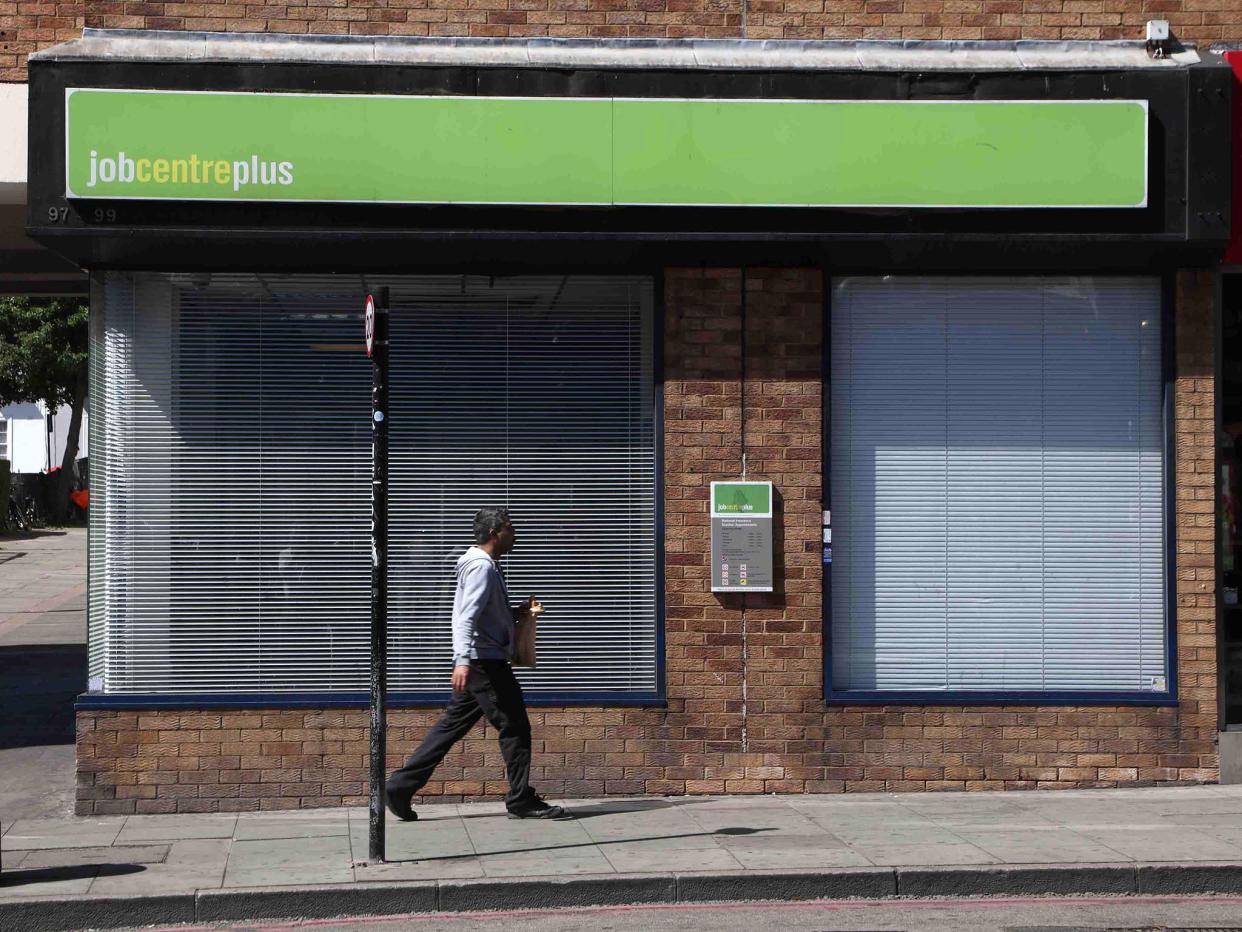UK unemployment rate hits 5% as more than 800,000 jobs disappear during pandemic

The number of vacancies also began to fall
(Rex)The UK unemployment rate rose to 5 per cent in the three months to November as redundancies hit a record high, official figures show.
The official jobless rate rose 0.6 per cent on the previous quarter – equivalent to 202,000 job losses – as England was placed under a national lockdown and restrictions were tightened in parts of Scotland.
Some 828,000 workers dropped off company payrolls between February and December, the Office for National Statistics reported.
There were indications that the easing of restrictions in the run-up to Christmas led to a pick-up in the jobs market as the number of people in payrolled employment rose 52,000 between November and December.
However, vacancies, which had been increasing in summer and early Autumn, began to fall.
Employers made a record number of people redundant between September and November – a period that was set to include the end of the furlough scheme until a last-minute extension by the chancellor, which came too late for some workers who had already been laid off.
London saw the steepest decline in employment, followed by north-eastern Scotland,
Unemployment in London is estimated to have hit 6.9 per cent in the three months to November, significantly above the national rate.
A relatively large proportion of people in the capital are employed in sectors badly affected by the pandemic such as hospitality, tourism and leisure.
Nationwide, the claimant count, which includes people out of work and looking for a job as well as those on low pay and claiming benefits, rose 0.3 per cent in December to 2.6 million.
There was some positive news in the official data on wages, with early estimates for December 2020 indicating that median monthly pay increased by 4.9 per cent, compared with the same month a year earlier. Northern Ireland saw the biggest rise of any UK nation or region. Median pay jumped 7.2 per cent over the 12 months.
Samuel Tombs, chief UK economist at Pantheon, said the “day of reckoning” on jobs had been postponed.
"The [furlough scheme] is due to be wound up at the end of April, and additional measures to support employment that will be announced in the Budget on 3 March probably will not be anywhere near as generous for firms,” he said.
“It remains likely, therefore, that the unemployment rate will jump in Q2, probably to about 6 per cent, when many firms – especially in the retail and consumer services sectors – likely will not ask all of their furloughed staff to return to work, and some people who left the workforce at the start of the pandemic return when the economy has reopened.”
Rising joblessness made it vital that Rishi Sunak kept a £20 uplift in the basic rate of universal credit, said Dave Innes, head of economics at the Joseph Rowntree Foundation.
“Cutting benefits just as unemployment accelerates is bad economics and bad policy. Nor is it acceptable to leave millions of families in the dark about whether their incomes will be cut by £20 a week in April,” Mr Innes said.
“The certainty these families need and deserve is long overdue – now is the time for the Chancellor to do the right thing and keep the Universal Credit uplift, as well as extending this lifeline to those on legacy benefits.”
Calls for extra support came in from business groups, anti-poverty campaigners and unions, adding to pressure on Mr Sunak as he prepares for the Budget.
“The more people we keep in work, the faster we can recover," said Frances O’Grady, general secretary of the TUC. "But with the job retention scheme set to end in April, millions of people’s jobs hang in the balance.
“When the government planned to withdraw support last autumn, despite restrictions still being in place, unemployment surged. We can’t let that happen again."
The Institute of Directors also urged the government to extend the job retention scheme.
“The latest lockdown will have only added further pressure on firms with troubled balance sheets, which means more jobs are likely to be lost in the coming months,” said Tej Parikh, the IoD’s chief economist.
Read More

 Yahoo Movies
Yahoo Movies 
